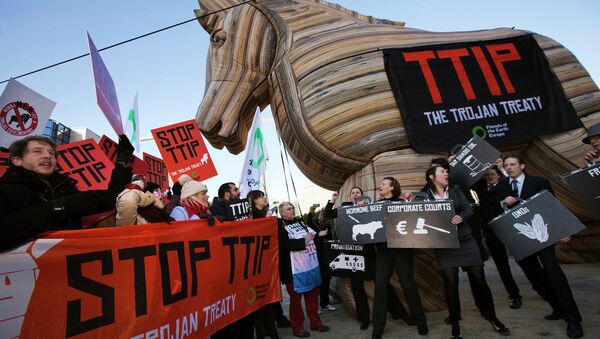"It [the TTIP] will allow companies to push forward their own legislative initiatives," Sanchez, a prominent critic of the proposed agreement, told El Publico.
Article 14 of the second section of the draft agreement, entitled "Establishment of the Regulatory Cooperation Body," says that the parties to the treaty will establish a Regulatory Cooperation Body, (RCB) whose functions will include "the consideration of new initiatives for regulatory co-operation, on the basis of input from either Party or its stakeholders."
"It [RCB] has to consider legislative initiatives that may be coming from a third party, 'the stakeholders'… Not only will we have to ask the United States for permission to legislate, but also multinational [corporations] will be able to send their legislative initiatives? This is another move to strengthen corporate power," Sanchez said.
Anti-TTIP activists have repeatedly complained that the deal would benefit big corporations at the same time undermining environmental and labor standards.
In Europe more than 1.7 million people signed a petition against the TTIP and the Comprehensive Economic and Trade Agreement (CETA) – a similar treaty the European Union is discussing with Canada.



